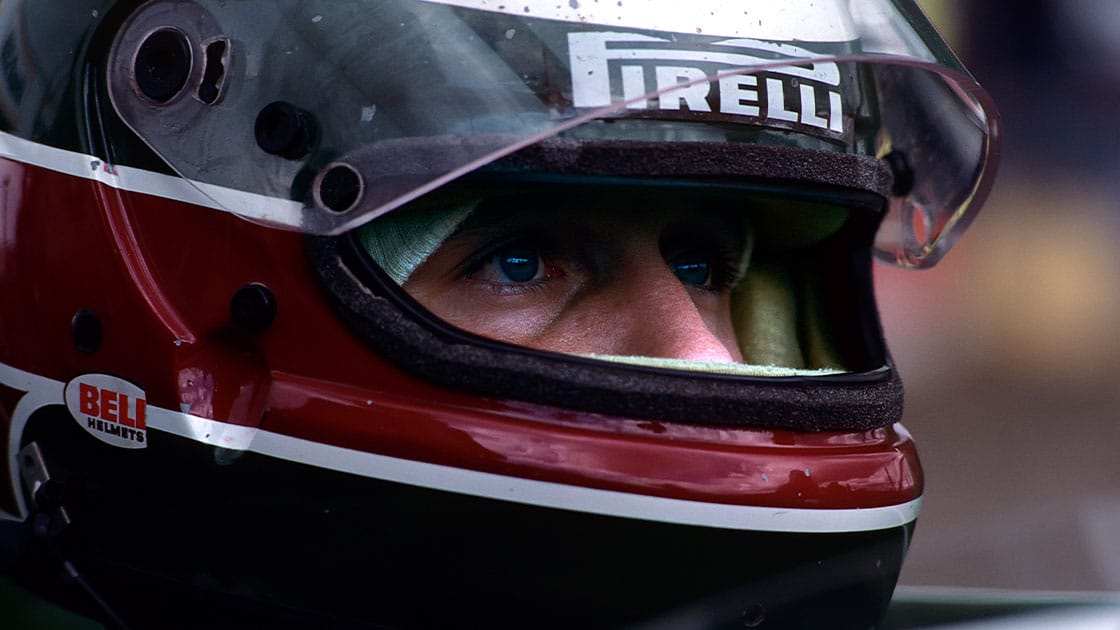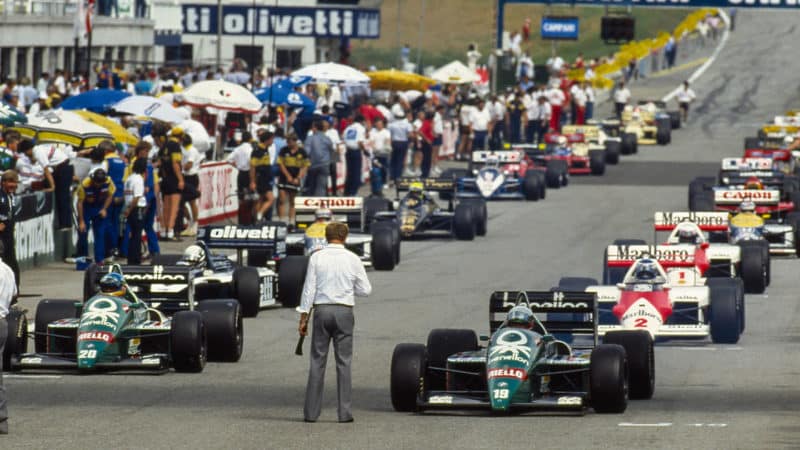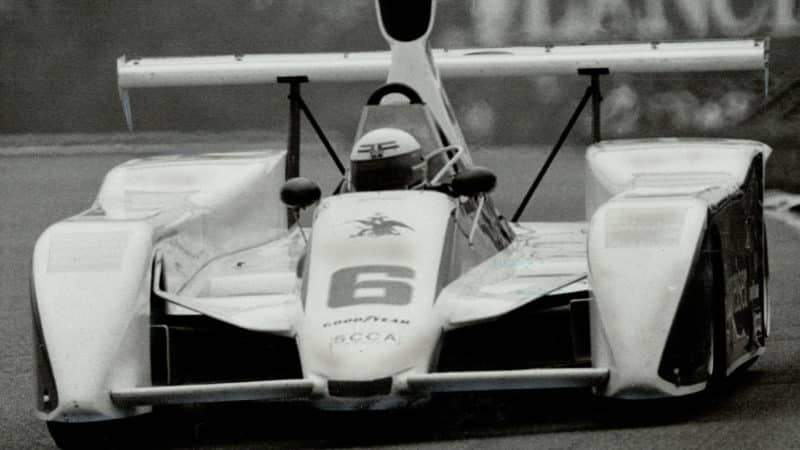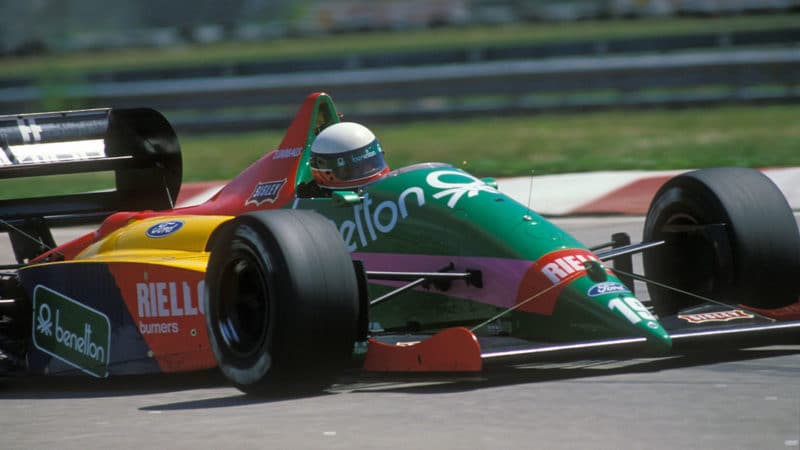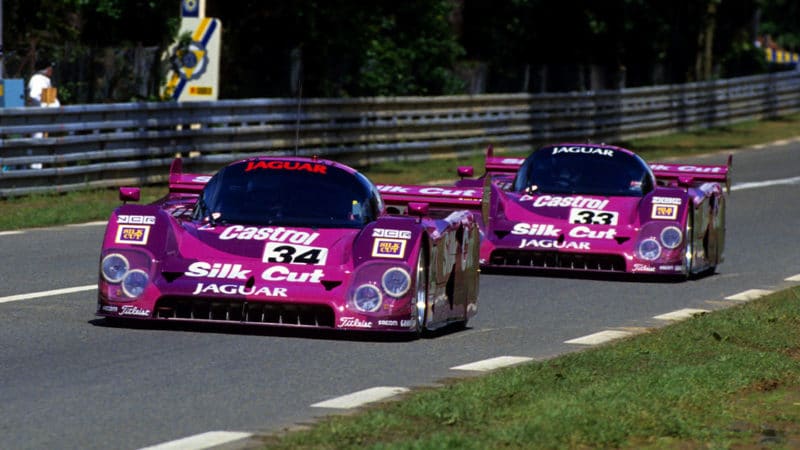Seven poles, five fastest laps, four wins, Fabi was quickest — but unlucky. A mechanical failure flipped him into the trees at Elkhart Lake, and although he put team-mate Al Unser Sr’s car on pole — despite being battered, bruised, black-eyed and temporarily blinded — politics dictated that the all-American hero take the start. At Riverside, a wheel fell off after an unnecessary stop. Hence more consistent Geoff Brabham won the title in a Lola.
Fabi: “I don’t think that being faster than Al was important. He just had a few weekends to fill and never had a good feeling with the car. He wasn’t as hungry as I was.”
Five-foot-five Fabi was ski-racer tough. Days before the second Mosport round he was diagnosed with appendicitis: op Wednesday, pole Saturday, win Sunday.
Herd: “He shrugged it all off. Typical Teo. Inner steel. He didn’t need a kiss and a cuddle like some. Very determined, totally straight to deal with, he drove as well that season as any driver I’ve ever worked with. F1 with Toleman in ’82 must have come as a shock.”
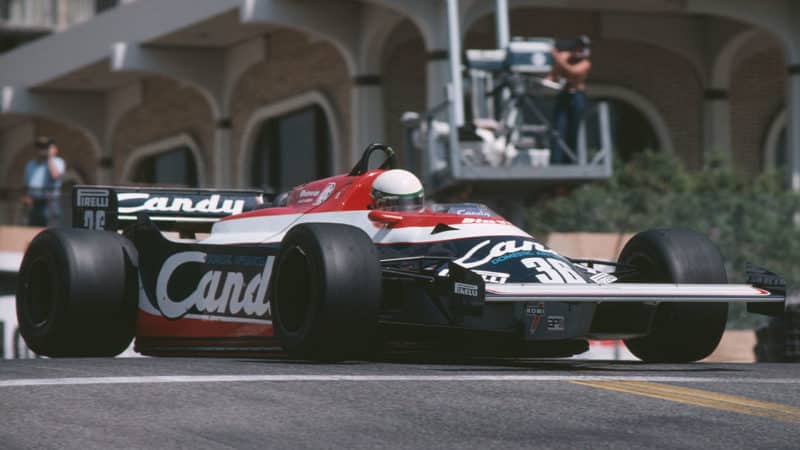
Struggling with the ‘General Belgrano’ Toleman TG181C in ’82 – he didn’t qualify here at Long beach
Getty Images
That team was built around Warwick. Its ‘General Belgrano’ TG181C was hopeless, with no development forthcoming because its replacement for 1983 was the priority. Fabi’s confidence was shot, his stock rock-bottom… Let’s just call it the Herd Instinct.
Johnny Rutherford had been slated to drive for the Forsythe brothers’ start-up Indycar team until he made a late swerve to Pat Patrick’s Wildcats. March’s ‘works team’ thus consisted of Green’s defunct Can-Am set-up, Herd, engineering when he wasn’t at F1 — and Fabi.
“Everyone was very motivated,” says Fabi. “I’d just had a terrible season in F1. And Barry had had a bad year in Can-Am.” And March, almost bankrupt at the start of 1981, wanted to push on from its American beachhead. Yet nobody gave this rookie team, with its rookie driver, a hope — until they ran third at the Atlanta opener. Indy was next.
“At Indy the speed, the closeness of the walls, looked crazy to me” Teo Fabi
“There is all this history and procedure to go through,” says Fabi. “An old driver takes you round and makes you watch. Sitting in the grandstand, the speed, the closeness of the walls, looked crazy to me. So my impression was distorted when I finally got in the car.”
Herd: “He’s not the first driver to have this happen. He found day one difficult and was all for jacking it in. I told him to sleep on it. The next day he just flew.” And would break every qualifying record.
The ‘inevitable’ win — the first for a European since Graham Hill’s 1966 Indy success — didn’t arrive until Pocono in August, by which time Penske’s Unser Sr held a commanding points lead. Second at Riverside, first at Mid Ohio, third at Michigan, Fabi needed to win the final two rounds — Laguna and Phoenix — from pole to stand a chance.
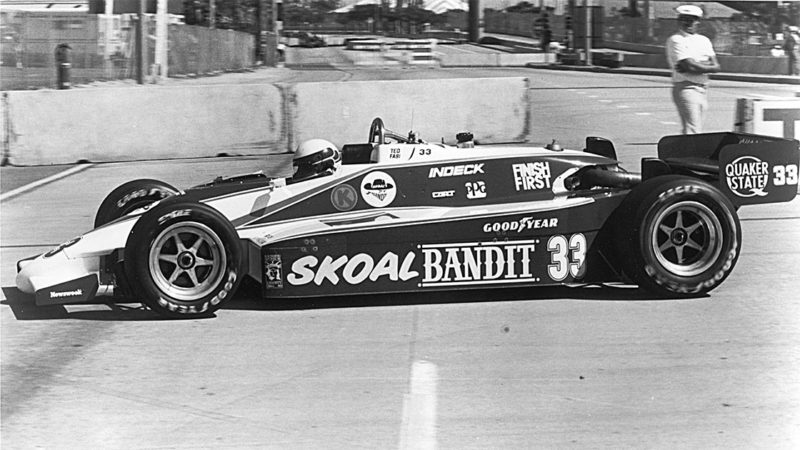
During successful first Indycar stint
ISC Images & Archives via Getty Images
Herd: “He achieved it all. His pole at Phoenix was by half a second — on a 25-second lap. Phenomenal. Mario Andretti got slightly the better start but Teo overtook him on the outside of Turn 1. Wow! As stunning a pass as I have ever seen.”
‘Big Al’ clung on, but Fabi, with four wins to his rival’s one, ended as the moral champion. He had already re-signed with Forsythe when Bernie Ecclestone called. Such was Teo’s reinvigorated clout, however, and so compelling is F1 to an Italian, that all sides agreed to a compromise: Teo would take the wheel for Brabham when his Indycar commitments allowed, and Corrado would take over when they didn’t.
Green: “Teo was a young man who thought that he could win everything. That’s why we signed him, so I can’t complain. It was a shame, though, because we were on a roll. We’d had a brilliant year, and yet so many more things could have gone better. We had the right people; we just needed more time to gel.
